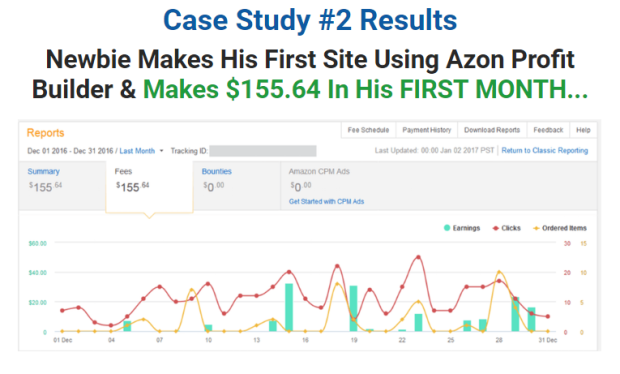Many or all of the products featured here are from our partners who compensate us. This may influence which products we write about and where and how the product appears on a page. However, this does not influence our evaluations.
There are many ways to improve your credit score fast, like checking the accuracy of your credit reports, fixing late payments, becoming an authorized user, and much more. Each method can add points to your current credit score.
Having a bad credit score can make it difficult to navigate life, and it can also cost you quite a bit of extra money. A low credit score can increase your interest rates for credit cards and loans and may also require you to put down larger deposits when renting a home or turning on services. However, a good credit score gives you more options for where you can live and the loans you can get. Plus, it can save you money in the long run, which is a win-win for most.
Here, we provide you with 11 different ways that might help you improve your credit score faster. Not only will these methods help you improve your credit score, but they’ll also help you maintain a healthy score in the future.
In This Piece:
- Check the Accuracy of Your Credit Reports
- Target the Areas You Need to Improve
- Fix Your Late Payments
- Get Added as an Authorized User
- Clear Any Outstanding Collection Accounts
- Open a Secured Credit Card
- Dispute Credit Inquiries
- Be Mindful of Your Credit Utilization
- Increase Your Credit Limits
- Set Up Automatic Payments
- Have Your Utilities Reported
1. Check the Accuracy of Your Credit Reports
The first step in improving your credit score is to be aware of what’s on your credit history. There are three major credit bureaus, Experian®, Equifax®, and TransUnion®, and each has its own credit report and score based on your credit history. That means everyone actually has multiple credit scores.
Sometimes, you may find errors on your report that you’ll need to correct through a dispute process. If you find an error, you’ll have to file a separate dispute with each credit bureau since they’re run separately. If there are multiple errors on your credit reports, you’ll need to dispute each of those individually. You might consider working with a credit repair company to make things a little easier for yourself.
Due to derogatory marks having such a big impact on your credit score, removing errors can be one of the fastest ways to build your credit score.
2. Target the Areas You Need to Improve
Checking your credit reports from each of the three main credit reporting agencies is easy. Under the Fair Credit Reporting Act, you have the right to obtain a free copy of all three credit reports once each year. The government mandates that you can receive one free credit report each year, and you can easily access it at AnnualCreditReport.com. You can also check your credit through our free credit report card, which provides a snapshot of your credit and a letter grade for each of the factors that drive your score.
Once you receive a copy of your credit report, you will know which areas need improvement and where to start.
3. Fix Your Late Payments
Late and missed payments can stay on your credit report for seven years. These derogatory marks lower your credit score and make you appear as a bigger risk to lenders.
The credit reporting agencies don’t remove these items, but you may be able to talk a creditor into doing so. Creditors can forgive one late payment if you have a history of on-time payments and you call to discuss it with them. Removing repeated delinquencies may require a little more effort on your part.
4. Get Added as an Authorized User
You can become an authorized user for a credit card account if you have a friend or family member with a good credit history. Even if you don’t use the credit card, your credit reports will reflect the person’s credit history of on-time payments.
This is also known as “piggybacking” on someone’s credit. Should you do this, it’s important to remember that the other person and yourself are now linked. This means that using the card and missing payments can harm the other person’s credit score and vice versa.
5. Clear Any Outstanding Collection Accounts
Contacting your creditors about paying off your debt is a great way to raise your credit score fast. Make sure that they agree to remove the negative hit to your credit report if you repay it in full—and get it in writing. If this agreement isn’t made, there will likely be no impact to your credit.
After making an agreement with the collections company, request a pay for delete letter to have it removed from your credit report. A pay for delete letter is an agreement in writing stating that the creditor will have the derogatory information removed from your report.
6. Open a Secured Credit Card
Having and using a credit card can help you build credit, but it’s difficult to get approved for a credit card when you have a low credit score, which is where secured credit cards become useful. Unlike a typical unsecured credit card, where you are given a credit line based on your credit alone, you can open a secured credit card by depositing money, which becomes your credit limit.
For example, if you deposit $500, you will then have a $500 line of credit. Banks are more likely to approve you for a secured credit card because it’s less of a risk. Your payments on this card are reported to the credit bureaus, and if you make those payments on time, this can help you raise your credit score.

7. Dispute Credit Inquiries
Many credit inquiries are hard inquiries, and hard inquiries impact your credit score. In fact, a hard inquiry stays on your credit report for an entire year. While each individual hit is relatively small, it can push you over the edge from one credit score tier to one below it. What’s more, several hard inquiries over a short period of time can drop your score by a lot.
Like any other negative factor on your credit report, you can dispute credit inquiries. If you didn’t approve the inquiry into your credit, you may be able to get it removed. This could potentially increase your credit score, but only slightly.
8. Be Mindful of Your Credit Utilization
If you carry a large amount of debt compared to your available credit, your score can suffer. In fact, credit utilization accounts for 30{e6a1e97ec1a15155ca0ed8c3e87721e561c99ed6e52274045963a20278fc2089} of your credit score. So, if your total credit card available credit is $10,000, and you’re currently using $8,000 of it, paying down those balances can increase your score.
Keeping your utilization rate at around 30{e6a1e97ec1a15155ca0ed8c3e87721e561c99ed6e52274045963a20278fc2089} is recommended. That’s $3,000 in debt on a $10,000 available limit, for example.
9. Increase Your Credit Limits
As discussed above, a low utilization rate is ideal, and one way to improve your credit utilization is by increasing your credit limits. Using the $10,000 example, $4,000 of debt would be a 40{e6a1e97ec1a15155ca0ed8c3e87721e561c99ed6e52274045963a20278fc2089} credit utilization ratio. If you increase your credit limit to $15,000, that same $4,000 of debt would only be 26{e6a1e97ec1a15155ca0ed8c3e87721e561c99ed6e52274045963a20278fc2089}. But be aware, this could trigger an inquiry and that will impact your score as well.
10. Set Up Automatic Payments
Having a good payment history is one of the best ways to improve your credit score because your payment history accounts for 35{e6a1e97ec1a15155ca0ed8c3e87721e561c99ed6e52274045963a20278fc2089} of your FICO score. One of the simplest ways to do this is to set up automatic payments. Simply go to your credit card company’s website, make an account, and set up automatic payments for the minimum each month.
This way, you never have to worry about forgetting your payment. You can also make additional payments during the month if you plan on paying more than the minimum.
11. Have Your Utilities Reported
Typically, your utilities are not reported to the credit bureaus, and not many people realize this. Each month, it’d be great to get positive payment history on your credit score for making these payments on time. You can do this by taking an extra step to have your utilities reported through different services. For example, Credit.com offers this as part of our ExtraCredit® service.

How Your Credit Score Is Calculated
When working on improving your credit score, it’s helpful to know how your score is calculated so you know which factors are the most important. You can then make a plan for where you should start. Here are the major credit scoring factors and how each one can impact your credit score:
- Payment history: A history of overdue and missed payments may signal that you are a bigger risk to creditors. Thus, this factor has the greatest negative effect on your credit score. This makes up about 35{e6a1e97ec1a15155ca0ed8c3e87721e561c99ed6e52274045963a20278fc2089} of your credit score.
- Amount of debt: Debt is 30{e6a1e97ec1a15155ca0ed8c3e87721e561c99ed6e52274045963a20278fc2089} of your FICO Score and also weighs heavily on other credit scoring models. This is also known as your “credit utilization,” and ideally, you want to keep it below 30{e6a1e97ec1a15155ca0ed8c3e87721e561c99ed6e52274045963a20278fc2089} of your max credit limit.
- Age of accounts: Creditors like to see a proven record of borrowing, utilizing, and repaying credit. If you’re new to credit and borrowing, there isn’t a lot of data to go on. This makes up 15{e6a1e97ec1a15155ca0ed8c3e87721e561c99ed6e52274045963a20278fc2089} of your score.
- Account mix: Making 10{e6a1e97ec1a15155ca0ed8c3e87721e561c99ed6e52274045963a20278fc2089} of your score, lenders want to make sure you can handle both revolving and installment credit. This means credit cards that you continue to use after repaying and loans that are closed upon full repayment.
- History of credit applications: Multiple hard inquiries on your credit may look like you are overextending yourself financially and appear desperate. This will lower your score. Credit inquiries make up 10{e6a1e97ec1a15155ca0ed8c3e87721e561c99ed6e52274045963a20278fc2089} of your score.
How Long Does It Take to Fix Your Credit Score?
Most people want to fix their credit score as quickly as possible, but the length of time often depends on your situation. If you have multiple derogatory marks on your credit report, it may take months or even years for them to drop from your report. When trying to fix your credit score, it’s most beneficial to start with methods you can control, like making your payments on time, disputing errors, and trying to settle your debts with collection agencies.

FAQs
Below, we’ve answered some of the most common questions people have about how to quickly improve their credit score.
Checking Your Credit Report Is the First Step Toward Improving Your Credit Score
Your credit report is the best place to start if you want to improve your credit score. Your credit report will show you your account balances, any derogatory marks you may have, and hard credit inquiries. This will help you see where to start, and you can also find out if there are any errors on your credit report.
To get an idea of where you stand with your credit, sign up for Credit.com’s free credit report card today.




















